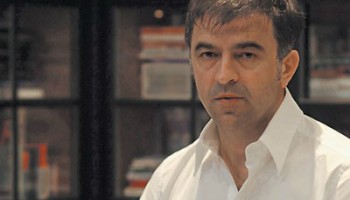While attacks on journalists are not unknown in a region wracked by war and massive upheavals in the 1990s, Montenegro journalists continue to face dangers. Duško Jovanović, editor-in-chief of the daily Dan, was murdered in May 2004. Jevrem Brković – who wrote a novel about an underworld in which crime and politics go hand-in-hand – survived an attack in October 2006, but his driver did not. That case also has not been solved.
Last autumn, two journalists were severely beaten in separate incidents in Montenegro, one likely over web stories on the northern Montenegrin drug trade, the other over newspaper stories on the business dealings of former prime minister Milo Djukanović. (Djukanović returned to power in late February.) In the former incident, Tufik Softić was hospitalized last Nov. 1 after two assailants beat him with baseball bats. Softic is the editor-in-chief of Radio Berane and contributes to the Balkan Investigative Reporting Network (BIRN). He had done stories about the new Mercedeses and other perks of the heroin trade appearing in the depressed northern town of Berane months before the attack. No one has been arrested so far.
The latter incident, in September 2007, involved the editor of Montenegro’s first privately owned newspaper, Vijesti. Zeljko Ivanović had just left a party marking the 10th anniversary of the newspaper’s founding when three men with wooden bats and iron rods attacked him.
Ivanović blamed the assault on Vijesti investigations into Djukanović. Djukanović’s 15-year rule over the former Yugoslav republic was the longest of any politician in the region. He stepped down in 2006 and had no seat in parliament, but still leads his Democratic Party of Socialists, and was re-instated as prime minister on Feb. 29. Italian prosecutors have charged him with cigarette smuggling during the 1990s. Djukanović threated to take Ivanović to court for linking him with the assault, to which the editor retorted: “I just repeated something that everyone knows – that he is the chief of the criminal family that rules Montenegro and decides everything, even human lives.”
In mid-September three men were arrested in connection with the assault. Vijesti objected that the three were merely small fries in the criminal underworld.
“This moment for journalists in Montenegro is the most difficult and most dangerous in last 20 years, more dangerous than in [Former Yugoslav President Slobodan] Milošević’s times,” Ivanović said by telephone from Podgorica. “Back then it was fighting about war and ideology. Now we speak about money, about business, about accounts, about laundering money and those people feel as though we are a private enemy, not a political or ideological enemy.”
The atmosphere has left Ivanović and other journalists feeling like Robin Hood, taking on the rich and powerful – but for the fact that their articles have little effect. “In the court and the police everyone says everything is OK,” he said. And the oppressive atmosphere is hardly encouraging Montenegro’s best young minds from going into journalism. “They say, ‘I don’t want to worry about who will wait for me in front of my house,’” Ivanović said. “That shows how this profession is, for ordinary people, very dangerous and very complicated.”
Gordana Igrić, BIRN regional director, said that Montenegro is no different from other countries in the region, where the criminals of the 1990s are trying to go legit.
“What I see in Montenegro," she said, "is that the legalized criminal structures during the war, profiteers basically, are coming to the point of cleaning [up] their pasts and controlling businesses, and to protect their businesses and their finances in the long term.”
Disclosure: Reporters from the Center for Investigative Reporting in Sarajevo were threatened with murder after they interviewed a Montenegrin law enforcement officer about a particular cigarette smuggler. Within days, the smuggler called a reporter's cell phone to make the threat.
Cigarette smugglers trade in murder
In the Balkans, death and cigarettes are closely related.But it's not always the carcinogens that are the problem.Smugglers...




